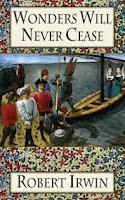Infinity Links
Somewhat surprisingly for a film that has so little time (and possibly also inclination) to explore any interesting ideas raised by its premise, Infinity War has resulted in a rather vibrant conversation. I'll say from the outset that most of the links I've collected proceed from the point of view that the film is at the very least flawed, if not genuinely bad. This is probably my selection bias speaking, but I really haven't seen any interesting positive discussions of the film--any in-depth engagement with it, it seems to me, must inevitably grapple with the film's myriad, foundational flaws. Also rooted in my own preoccupations is the fact that a lot of these links end up talking less about the film, and more about how it exposes some uncomfortable truths about how Marvel sees its franchise, its long-term goals, and its audience. Of the mainstream reviews--that is, those prohibited on pain of death of discussing the film's ending, AKA the only thing that i...
